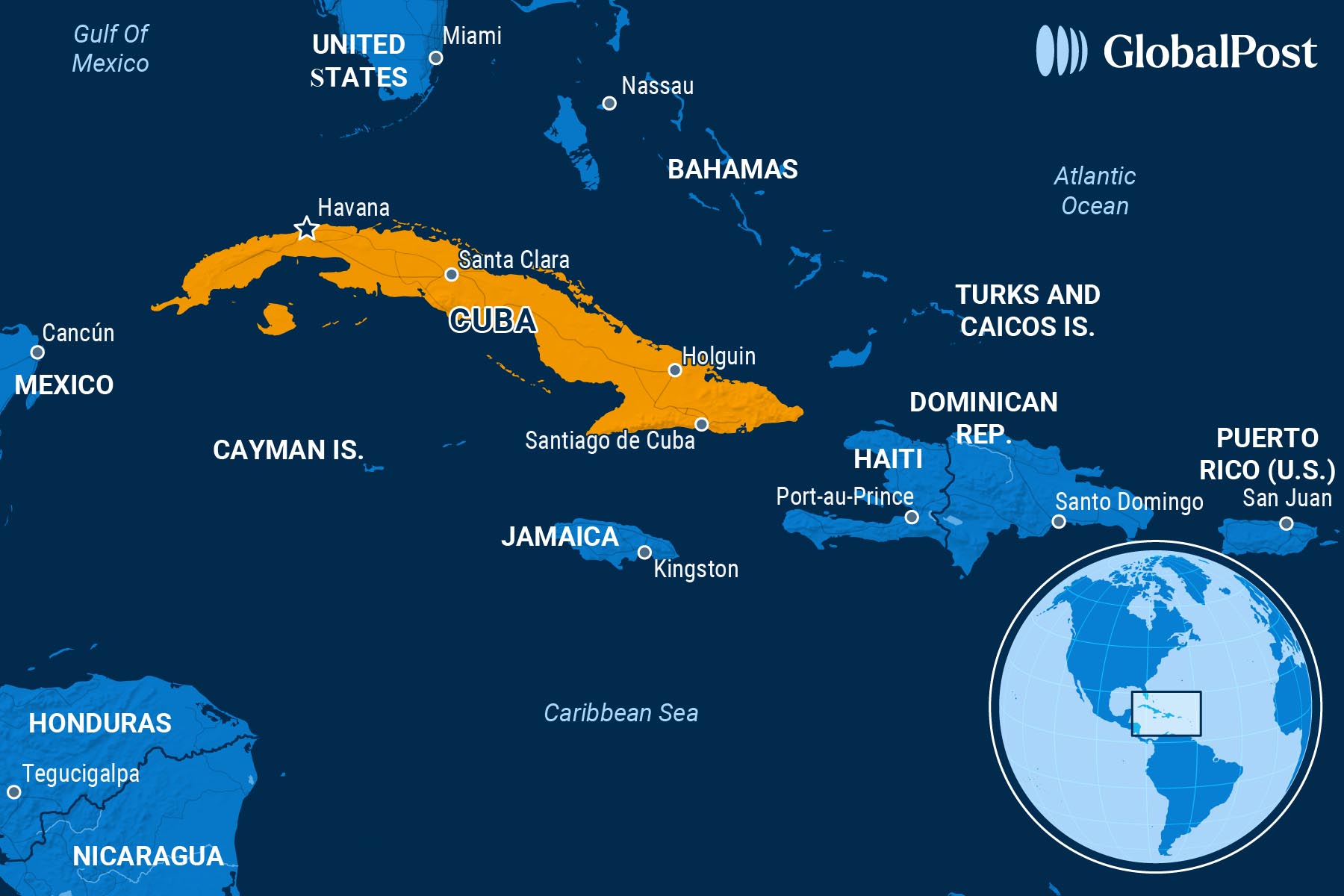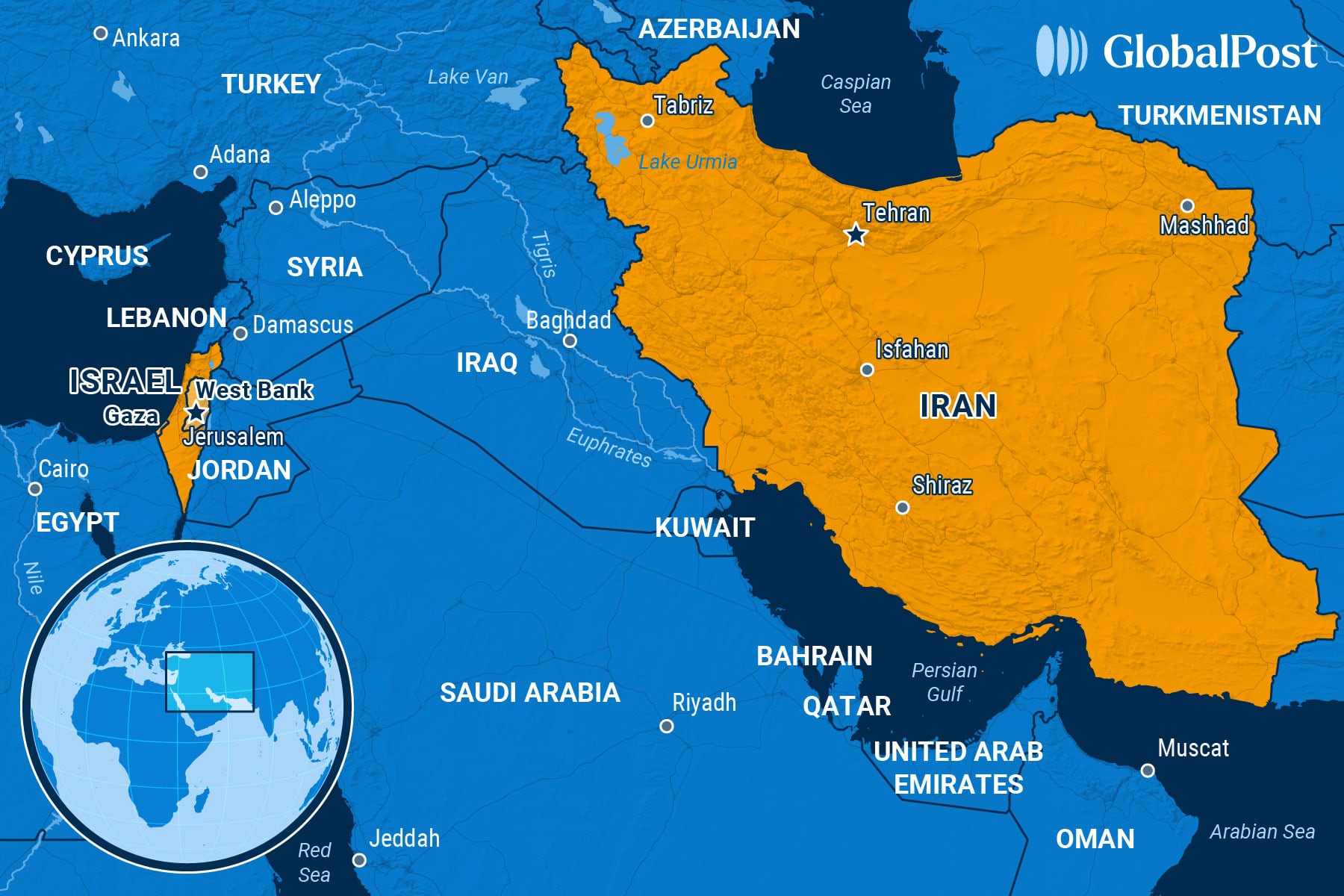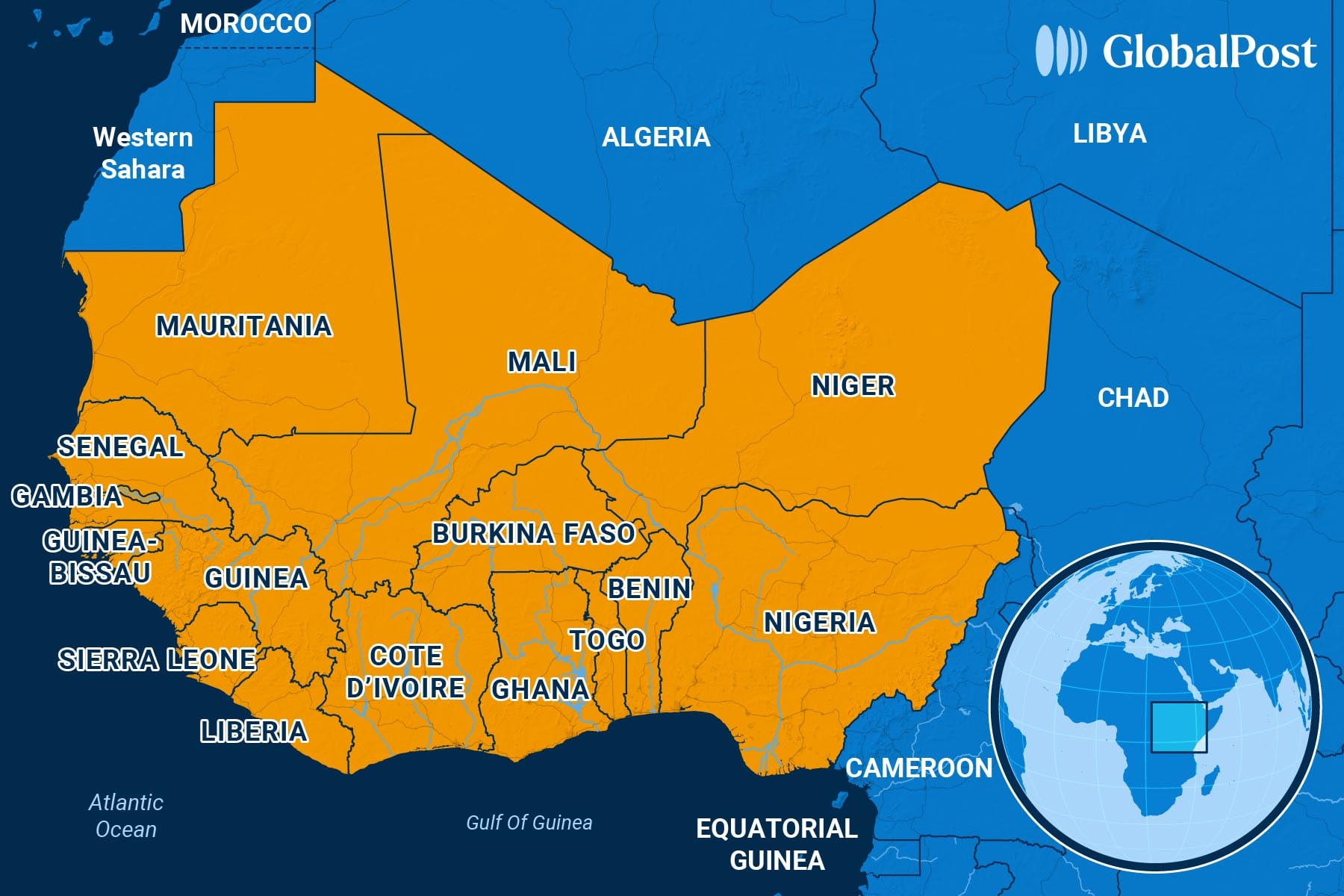In the Vise: Cuba Is Hanging On, Barely, As the US Turns the Screws
NEED TO KNOW
In the Vise: Cuba Is Hanging On, Barely, As the US Turns the Screws
CUBA

Cuban Deputy Foreign Minister Carlos Fernández de Cossío recently sat down with Democracy Now! to talk about the US government’s toughening stance on the communist-run island 90 miles off the coast of Florida.
Re-designating Cuba as a state sponsor of terrorism, resuming the American economic embargo on Cuba, banning travel from the island to the US, targeting Cuban immigrants for deportation, and sending immigrants detained in the US to the American military base in Guantánamo Bay were narrow-minded policies that were “not relevant to the interests of most Americans,” said Fernández de Cossío.
As Cossío spoke, students at the Caribbean country’s universities were taking to the streets to protest the 800-percent increases in Internet fees, reported United Press International, adding that the hikes had undercut academic work, research, and public health services.
The two developments reflect how Cuba faces threats, old and new, even as it reaches breaking point.
Young Cubans who have lived with frequent power outages, water shortages, transportation failures, and skyrocketing food prices said that pricey wi-fi was the last straw. Cuba’s state-owned communications company, ETECSA, which enjoys a monopoly as the country’s Internet provider, unilaterally raised the price, saying it was short of foreign currency. However, the new prices, based on average use, are double the monthly base salary of government employees.
Still, students said the real outrage was also that Cuba’s communist government is increasing its reliance on the US dollar.
In recent months, state supermarkets have opened across Cuba that only accept hard currencies. Gasoline stations are switching away from the peso. Many believe electricity is next. Already, numerous companies offer foreign packages that encourage Cubans to ask their relatives abroad to pay.
“(The anger) reflects a growing sense on the island that the government is moving away from its socialist principles, while not liberalizing the economy enough to allow people to earn the money now needed to live,” the Guardian wrote.
Regardless, the price spikes for the Internet are one of many examples of the economy’s problems.
Outlets that track the island, like CiberCuba, wrote that inflation is up and food scarcity is widespread. Poor seniors, for example, are consuming coffee and banana peels to stave off hunger. Products like milk are uncommon now. When families are lucky enough to find food, they cook over charcoal due to natural gas shortages.
The US has arguably contributed to these troubles, analysts say. Restrictions on remissions to islanders from immigrant Cubans and Cuban Americans in the US have dramatically reduced income, for instance, as the state-owned Cuban News Agency described. Also, doing business with a Cuban entity is illegal and subject to sanctions.
Citing the Cuban government’s abysmal human rights record and resistance to American power projection in the region, the chief of mission in the US Embassy in Cuba, Mike Hammer, said the US was already planning to impose a new round of sanctions on the country. “This administration is determined to sanction repressors,” Hammer told Reuters and other reporters recently in Miami. “There will be consequences for their actions.”
The Cuban economy – and thus the communist government – are on the brink of collapse amid these pressures, argued Gerold Schmidt, an expert at the Rosa-Luxemburg-Stiftung, a German think tank.
“The socialist country is currently facing what is likely the worst economic crisis since the 1959 revolution,” he wrote. “It will be difficult for Cuba’s political leadership to find a way out of the crisis in the foreseeable future. On the one hand, it does not want to give up the gains made by the revolution… But the country lacks the necessary funds for investing in vital sectors and cannot obtain further loans due to US sanctions and its already high levels of foreign debt. In the short term, the focus will have to be on how the country’s economy can survive without overstretching the population’s patience.”
THE WORLD, BRIEFLY
Israel Confirms Ceasefire With Iran After Tehran Strikes US Base in Qatar
IRAN / ISRAEL

Israel confirmed a ceasefire with Iran on Tuesday, shortly after US President Donald Trump announced that an agreement had gone into effect, a development that came less than a day after Tehran launched retaliatory strikes on a US military base in Qatar, the Wall Street Journal reported.
On Tuesday, Israeli officials said they had accepted Trump’s proposed ceasefire deal, claiming that Israel had achieved its war objectives by neutralizing what it called a “dual existential threat” from Iran’s nuclear and ballistic missile programs.
While Iranian officials initially refused to halt hostilities without a cessation of Israeli strikes, Iranian state media later confirmed that the ceasefire began after Tehran launched what it said was its final missile barrage at Israel, NBC News noted.
Just hours earlier, Iran fired 19 missiles at the US Al Udeid Air Base in Qatar, in retaliation for American strikes on Iranian nuclear facilities over the weekend, the Associated Press reported.
The attack followed Qatar’s closure of its airspace as a precaution, and Iranian authorities claimed they gave Washington advance warning. They also said they used the same number of bombs as the US had dropped, signaling a possible intention to de-escalate.
There were no casualties reported, and only one missile caused damage. Still, Qatari officials denounced the attack as “a flagrant violation of Qatar’s sovereignty, its airspace, and international law.”
Iran’s state television aired footage of the attack to martial music, labeling it “a mighty and successful response by the armed forces of Iran to America’s aggression.” The broadcast noted the base was targeted because it was outside population centers.
President Trump thanked Iran for its advance warning and renewed calls for peace. Bahrain and Kuwait temporarily closed their airspace during the exchange but reopened it hours later.
The missile exchange between Iran and Israel began on June 13, after Israel launched surprise strikes on Iranian nuclear and military infrastructure. Iran retaliated by firing hundreds of missiles and drones into Israeli cities.
The United States initially did not participate in the Israeli strikes, but later launched a series of airstrikes Saturday targeting three Iranian nuclear facilities.
The ongoing tensions have sparked fears of a widening regional conflict and international calls for de-escalation.
Although the ceasefire has brought a pause to hostilities, analysts told Reuters that key questions remain, including the terms of the agreement and whether the US and Iran will revive stalled nuclear talks.
Meanwhile, Iran’s parliament voted over the weekend to close the Strait of Hormuz, a strategic waterway that connects the Gulf with the Arabian Sea, and hosts about 20 percent of the world’s oil and gas trade, the BBC noted.
Such a move would seriously impact the global economy, disrupting international trade and increasing oil prices. It could also cause the cost of goods and services worldwide to spike, hitting some of the world’s biggest economies, including China, India, and Japan, which are among the top importers of crude oil passing through the narrow waterway.
On Monday, European and US leaders warned Iran against such a move, calling it “extremely dangerous.”
The oil transported through the corridor originates in Iran but also from other Gulf states such as Iraq, Kuwait, Qatar, Saudi Arabia, and the United Arab Emirates. If Iran moves to hinder passage through it, it could risk hostilities with its neighboring oil-exporting countries, the United States and Europe, which is heavily dependent on this trade.
Iran has threatened to close the Strait in previous conflicts but never followed through. However, persistent threats of closure have pushed the other oil-exporting countries of the region to develop alternative commercial routes.
Still, observers noted that Iran is isolated: Russia and China are unlikely to help the country militarily while most of its neighbors in the region have long been at odds with its regime. On Monday, former Russian president and current deputy chairman of Russia’s security council Dmitry Medvedev said multiple countries are ready to directly supply Iran with nuclear warheads as a result of the US strikes on key Iranian nuclear sites, a claim analysts dispute.
Trump shot back: “Did he really say that or, is it just a figment of my imagination? If he did say that, and, if confirmed, please let me know, IMMEDIATELY,” he wrote. “I guess that’s why Putin’s ‘THE BOSS.’”
ICC Investigating Wagner Group over War Crimes in West Africa
WEST AFRICA

The International Criminal Court (ICC) has been requested to investigate the Russian mercenary Wagner Group over alleged war crimes carried out in West Africa, with legal scholars arguing that sharing graphic images of atrocities they have allegedly committed on social media is a violation of international law, Euronews reported.
The request, from legal scholars at the University of California Berkeley, said that Wagner’s presence in the region – in Burkina Faso, Mali, Niger, and the Central African Republic (CAR) – has led to the commission of multiple war crimes: The acts of violence themselves, such as beheadings, dismemberments, and possibly even cannibalism, as well as the sharing of videos and images of them on social media platforms like Telegram and X, according to Africanews.
The videos were removed from X for violating the platform’s rules and posted on Telegram behind a paywall. Telegram told the Associated Press the content was “removed whenever discovered” for breaching the platform’s guidelines.
The reports center on atrocities committed in Mali and Burkina Faso specifically. The militaries of the two countries distanced themselves from the violent content, saying it exemplified “rare” atrocities.
Analysts from UC Berkeley also urged the ICC to investigate the governments of Mali and Russia over alleged abuses in northern and central Mali between December 2021 and July 2024.
With the US and France retreating militarily from the region, Russia has filled the void, sending mercenaries who were part of the Wagner Group to fight alongside military governments against jihadist militias in countries including Mali, Burkina Faso, and Niger.
The Wagner Group became Africa Corps after its leader Yevgeny Prigozhin staged a coup against Russian leader, Vladimir Putin, and was killed in a plane crash in 2023.
The mercenaries have long been accused of human rights violations. Earlier this year, protests broke out in the CAR because of their acts of violence against civilians.
Japan’s Ruling Party Suffers Historic Defeat In Local Vote
JAPAN
 Japan’s ruling Liberal Democratic Party (LDP) suffered a major setback in Tokyo’s assembly election Sunday, a result that analysts say could influence its performance in next month’s upper house vote, the Japan Times reported.
Japan’s ruling Liberal Democratic Party (LDP) suffered a major setback in Tokyo’s assembly election Sunday, a result that analysts say could influence its performance in next month’s upper house vote, the Japan Times reported.
The LDP secured just 21 seats in the 127-member Tokyo Metropolitan Assembly – down from 30 in the previous election and its worst result in the capital to date. Tomin First no Kai, a regional party backed by Tokyo Governor Yuriko Koike, won the most seats with 31.
The results were a surprise to many in the political establishment, especially as recent polls had shown a rebound in support for the LDP ahead of the July elections.
The party – which has ruled Japan for most of the postwar era – has faced sinking popularity over rising consumer prices, a shortage of rice, and a 2023 fundraising scandal that implicated senior party leaders in off-the-book revenue schemes.
Although recent national surveys still ranked it as the most popular party – with 24.5 percent support, up nearly five points from earlier this year – the Tokyo loss raised doubts about whether those gains will translate into electoral success.
Observers suggested that the spike in support this year could be attributed to Prime Minister Shigeru Ishiba’s decision to provide cash handouts of around $140 for every citizen ahead of the July elections.
But LDP Tokyo leader Shinji Inoue said Sunday’s poor showing was due to the fallout from the funding scandal and doubts over the government’s efforts to tackle inflation, Agence France-Presse wrote.
While some analysts noted that the results are “very severe” for the ruling party, others suggested that they might not necessarily predict LDP’s fortunes next month.
Masahisa Endo of Japan’s Waseda University told AFP that even if LDP fails to win a majority in the upper house, Ishiba is unlikely to face leadership challenges. He added that it is also unlikely for Japan’s divided opposition to mount a challenge against the LDP.
DISCOVERIES
Sideways Strength
If eggs are packaged vertically, it must be because they are strongest at their ends. At least, this had long been the assumption.
When MIT engineers put this belief to the test, however, they cracked open the belief and found that eggs are far more resilient on their sides.
“Every year we follow the scientific literature and talk to the students about how to position the egg to avoid breakage on impact,” study author Tal Cohen said in a statement. “But about three years ago, we started to question whether vertical really is stronger.”
The study found that, by positioning an egg sideways and pressing on it, it bends a little instead of breaking immediately. Horizontally, eggs behave similarly to how a car’s shock absorbers work: They bend slightly under pressure, allowing them to absorb more energy without breaking.
To determine which side is stronger, the researchers conducted both static and dynamic tests.
With static compression tests, they applied a gradually increasing force to measure stiffness and toughness.
“In the static testing, we wanted to keep an egg at a standstill and push on it until it cracked,” said study co-author Avishai Jeselsohn. “We used thin paper supports to precisely orient the eggs vertically and horizontally.”
Researchers discovered that the same amount of force was necessary to start a crack in both places. However, there were differences in how much compression an egg could take before breaking. “The horizontal egg compressed more under the same amount of force, meaning it was more compliant,” said study author Joseph Bonavia.
Through mechanical modeling and numerical simulations to confirm results, the study concluded that, despite the consistent force applied to the egg, the horizontal side of the eggs absorbed more energy due to their compliance.
The researchers then performed dynamic drop tests – ensuring simultaneous release and consistent egg orientation – to confirm that the results held up in practice. Dropping eggs from various heights, they observed that horizontal eggs cracked less frequently when dropped from the same point.
“This confirmed what we saw in the static tests,” said Jeselsohn. “Even though both orientations experienced similar peak forces, the horizontal eggs absorbed energy better and were more resistant to breaking.”
